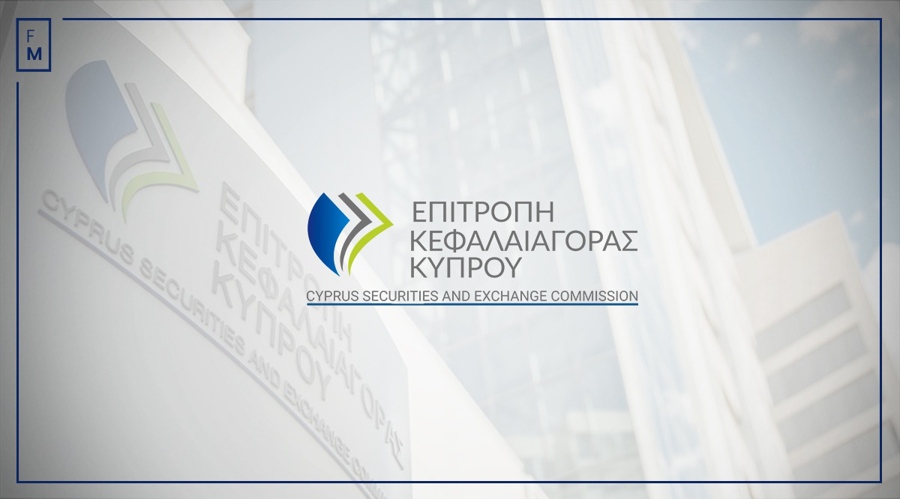
The Cyprus Securities and Exchange Commission
(CySEC) has released its Annual Statistical Bulletin for 2022, highlighting an overview of Cyprus’ financial landscape. Despite a slowdown in the global
economy, the market for regulated
entities (REs) showed resilience.
CySEC’s 2022 report disclosed a notable rise of 4%
in the number of REs under its supervision. This increase was a result of an
upswing in fund management companies and Cyprus Investment Firms (CIFs). However, the number of listed companies and administrative service providers remained unchanged.
Between 2021 and 2022, there was a drop of 2% in the
number of CIFs. By the end of 2022, the cumulative number of CIFs stood at
225. While the total number of CIFs declined
year-on-year, the number of clients surged by 26% to 4,147,949, partly due to market
growth and changes in client reporting post-Brexit. Across all the segments, the number of clients peaked at 4,175,826.
CIFs emerged as a dominant force, boasting a
staggering 99% share of the client base in 2022. This marked a substantial
upsurge from previous years. However, despite this sizeable growth,
CIFs faced a reduction of 53% in total assets.
According to the regulator, this decline is attributed
partly to geopolitical disruptions and the fluctuation in currencies. Nonetheless,
amidst these challenges, CIFs saw an increase of 14% in trading income.
CIFs’ total assets reduced to €4.9 billion in 2022,
compared to €10.5 billion in 2021. The conflict in Ukraine reportedly played a
significant role due to sanctions and reduced operational volumes. Currency fluctuations, particularly the deviation in EUR/USD exchange rates,
affected CIFs with assets denominated in USD.
Geopolitical Factors and Market Trends
The withdrawal of a considerable amount of CIFs’
assets denominated in the Russian ruble contributed to this decline. The CySEC noted that this happened as
firms strived to minimize their exposure to this specific currency amidst market
uncertainties.
Interestingly, 23.4% of the total investments directed to Cyprus, were predominantly channeled into Private Equity (70%) and
Real Estate (13%).
The locally listed companies in Cyprus witnessed reduced by 16% from 2019 to 2022. Despite
this slump, many of these companies traded in the Alternative Market, with a
notable presence in the financial services (27%) and travel and leisure (19%)
sectors.
The Cyprus Securities and Exchange Commission
(CySEC) has released its Annual Statistical Bulletin for 2022, highlighting an overview of Cyprus’ financial landscape. Despite a slowdown in the global
economy, the market for regulated
entities (REs) showed resilience.
CySEC’s 2022 report disclosed a notable rise of 4%
in the number of REs under its supervision. This increase was a result of an
upswing in fund management companies and Cyprus Investment Firms (CIFs). However, the number of listed companies and administrative service providers remained unchanged.
Between 2021 and 2022, there was a drop of 2% in the
number of CIFs. By the end of 2022, the cumulative number of CIFs stood at
225. While the total number of CIFs declined
year-on-year, the number of clients surged by 26% to 4,147,949, partly due to market
growth and changes in client reporting post-Brexit. Across all the segments, the number of clients peaked at 4,175,826.
CIFs emerged as a dominant force, boasting a
staggering 99% share of the client base in 2022. This marked a substantial
upsurge from previous years. However, despite this sizeable growth,
CIFs faced a reduction of 53% in total assets.
According to the regulator, this decline is attributed
partly to geopolitical disruptions and the fluctuation in currencies. Nonetheless,
amidst these challenges, CIFs saw an increase of 14% in trading income.
CIFs’ total assets reduced to €4.9 billion in 2022,
compared to €10.5 billion in 2021. The conflict in Ukraine reportedly played a
significant role due to sanctions and reduced operational volumes. Currency fluctuations, particularly the deviation in EUR/USD exchange rates,
affected CIFs with assets denominated in USD.
Geopolitical Factors and Market Trends
The withdrawal of a considerable amount of CIFs’
assets denominated in the Russian ruble contributed to this decline. The CySEC noted that this happened as
firms strived to minimize their exposure to this specific currency amidst market
uncertainties.
Interestingly, 23.4% of the total investments directed to Cyprus, were predominantly channeled into Private Equity (70%) and
Real Estate (13%).
The locally listed companies in Cyprus witnessed reduced by 16% from 2019 to 2022. Despite
this slump, many of these companies traded in the Alternative Market, with a
notable presence in the financial services (27%) and travel and leisure (19%)
sectors.
- SEO Powered Content & PR Distribution. Get Amplified Today.
- PlatoData.Network Vertical Generative Ai. Empower Yourself. Access Here.
- PlatoAiStream. Web3 Intelligence. Knowledge Amplified. Access Here.
- PlatoESG. Carbon, CleanTech, Energy, Environment, Solar, Waste Management. Access Here.
- PlatoHealth. Biotech and Clinical Trials Intelligence. Access Here.
- Source: https://www.financemagnates.com//forex/cyprus-investment-firms-witness-53-decline-in-assets-amid-geopolitical-disruptions/
- :has
- :is
- 2%
- 2019
- 2021
- 2022
- 225
- 23
- 9
- a
- across
- administrative
- affected
- Alibaba
- Alibaba Cloud
- All
- alternative
- amidst
- amount
- an
- and
- annual
- AS
- Assets
- At
- banner
- base
- Billion
- boasting
- bulletin
- by
- capable
- challenges
- Changes
- CIFs
- click
- client
- clients
- Cloud
- commission
- Companies
- compared
- conflict
- Connections
- considerable
- contributed
- cross-border
- currencies
- Currency
- Cyprus
- CYSEC
- Decline
- dedicated
- Denominated
- Despite
- deviation
- directed
- disruptions
- dominant
- Drop
- due
- economy
- emerged
- end
- entities
- equity
- estate
- EUR/USD
- exchange
- Exchange Commission
- Exposure
- faced
- factors
- FAST
- financial
- financial services
- firms
- fluctuation
- fluctuations
- For
- Force
- forex
- from
- fund
- geopolitical
- Global
- Globally
- Growth
- happened
- helps
- highlighting
- However
- HTTPS
- in
- Income
- Increase
- into
- investment
- investment firms
- Investments
- ITS
- jpg
- Know
- landscape
- Listed
- locally
- management
- many
- marked
- Market
- minimize
- notable
- noted
- number
- of
- operate
- operational
- overview
- particularly
- peaked
- plato
- Plato Data Intelligence
- PlatoData
- played
- predominantly
- presence
- previous
- private
- Private Equity
- providers
- Rates
- real
- real estate
- Reduced
- reduction
- regulated
- regulator
- released
- remained
- report
- reportedly
- Reporting
- resilience
- result
- Rise
- Role
- ruble
- russian
- russian ruble
- s
- Sanctions
- saw
- scenarios
- Sectors
- securely
- Securities
- Securities and Exchange Commission
- segments
- service
- service providers
- Services
- Share
- showed
- significant
- Slowdown
- Slump
- Solutions
- specific
- stable
- staggering
- statistical
- substantial
- supervision
- Surged
- that
- The
- their
- There.
- These
- this
- to
- Total
- traded
- Traders
- Trading
- travel
- Ukraine
- uncertainties
- under
- USD
- volumes
- was
- were
- while
- with
- withdrawal
- witness
- witnessed
- years
- zephyrnet








